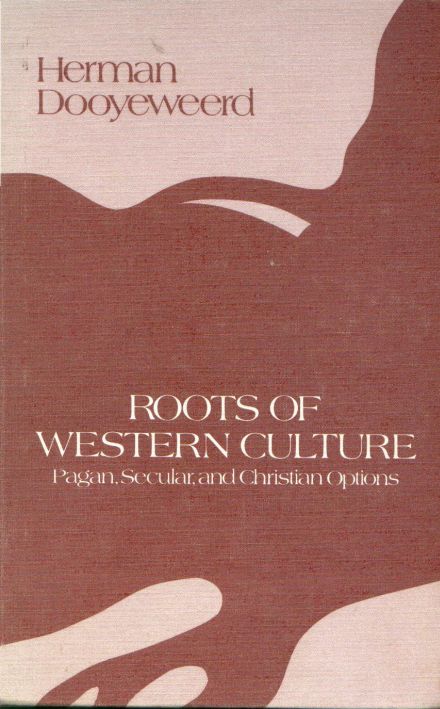Welcome to a study guide for Herman Dooyeweerd’s Roots of Western Culture. It is a working document. If any one has any comments, criticism or suggestions please feel free to make them!
This study guide was originally available here.
Historical background to the book
Roots was originally a series of newspaper articles.
Dooyeweerd became the editor of the newspaper the Nieuw Nederland just after the end of the Second World War in August 1944.
The war had hit The Netherlands hard – the Nazis invaded in May 1940. The resistance movement was strong there. Dissent against the Nazis meant that each person had to trust one’s life to the next resistance fighter – this brought about a spirit of of unity and trust. Christians and Marxists were co-belligerents against a common enemy.
The Dutch National Movement (Nederlandse Volksbeweging) hoped to build upon this unity and hope and so issued a manifesto in May 1945. Many including Queen Wilhelmina (1880-1962; she reigned from 1890 until her abdication in 1948) were supportive of this and it was hoped that the next elections in 1946 would see a new ideal in politics.
Dooyeweerd, however saw that the principle of pluriform democracy was at risk. Dooyeweerd hoped to raise people’s awareness of these issues in these articles and the importance of the antithesis in particular.
Advert for the Wedge version of Roots taken from The Reformed Journal April 1980:
This study guide was originally available here.
Historical background to the book
Roots was originally a series of newspaper articles.
Dooyeweerd became the editor of the newspaper the Nieuw Nederland just after the end of the Second World War in August 1944.
The war had hit The Netherlands hard – the Nazis invaded in May 1940. The resistance movement was strong there. Dissent against the Nazis meant that each person had to trust one’s life to the next resistance fighter – this brought about a spirit of of unity and trust. Christians and Marxists were co-belligerents against a common enemy.
The Dutch National Movement (Nederlandse Volksbeweging) hoped to build upon this unity and hope and so issued a manifesto in May 1945. Many including Queen Wilhelmina (1880-1962; she reigned from 1890 until her abdication in 1948) were supportive of this and it was hoped that the next elections in 1946 would see a new ideal in politics.
Dooyeweerd, however saw that the principle of pluriform democracy was at risk. Dooyeweerd hoped to raise people’s awareness of these issues in these articles and the importance of the antithesis in particular.
Advert for the Wedge version of Roots taken from The Reformed Journal April 1980:


No comments:
Post a Comment